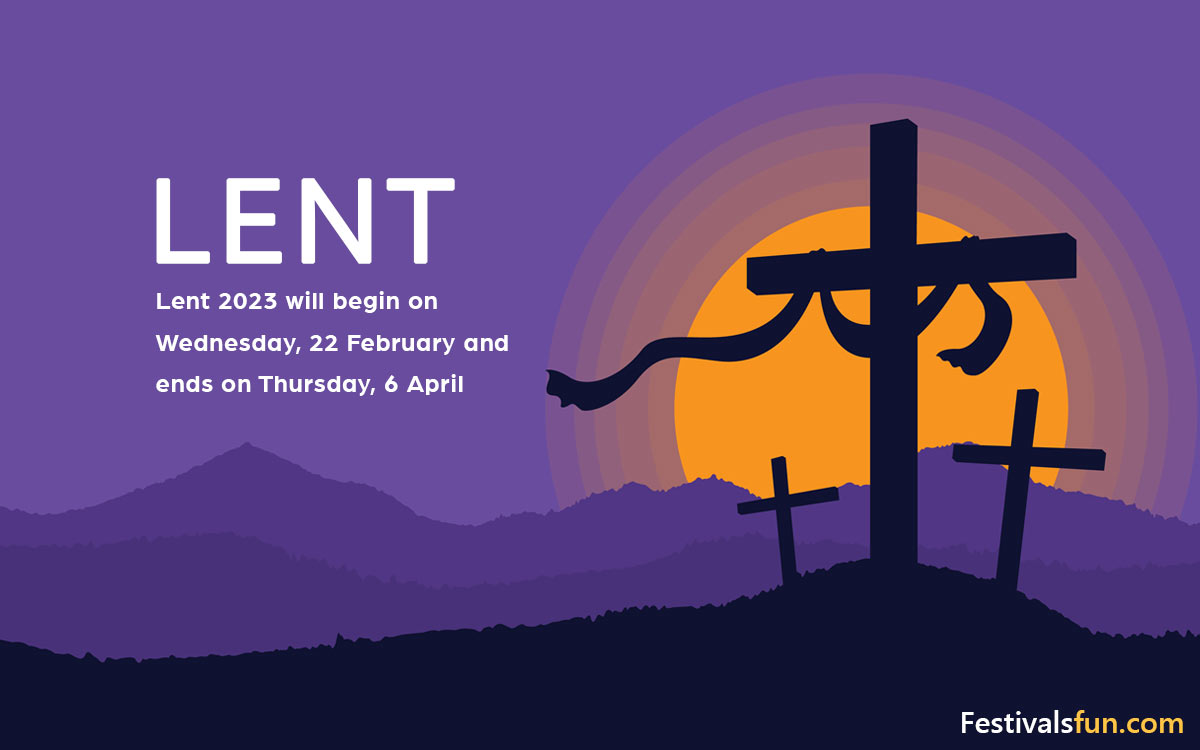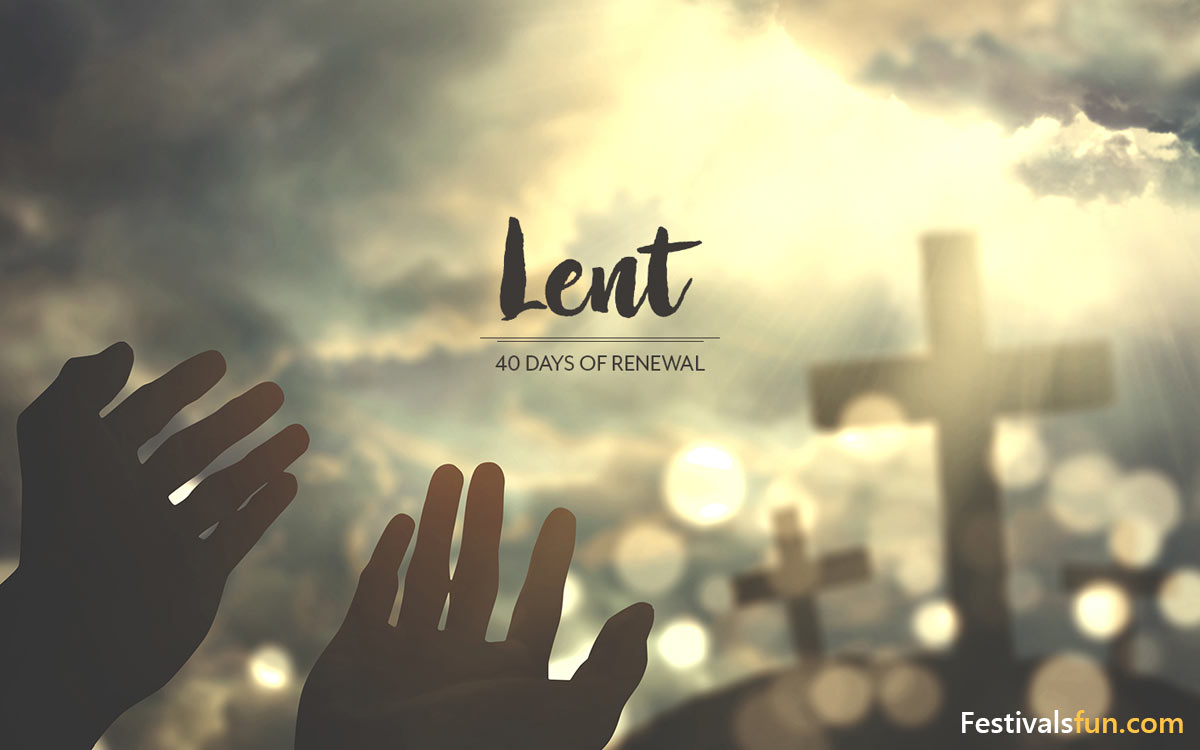The holy period of Lent in 2026 will begin from 18 February and ends on April 2. Explore dates, history and significance of Lent for Christians worldwide.
Lent 2026
Spring is considered auspicious in many cultures. Blossoming of new fruits and flowers marks the renewal of life and continuity of the order. As Christians excitedly await Easter, they also spend 40 days preparing for it during Lent.
While Easter celebrates the resurrection of Jesus, Lent is observed as a special time of prayer, penance, sacrifice and fasting. Lasting for 6 weeks, Lent begins on Ash Wednesday and is completed with the celebration of Easter.
Lent is one of the most important times in the Christian calendar, especially among the Anglican, Catholic, and Orthodox traditions. For communities of these faiths, Lent is the equivalent of Advent - the build-up to Christmas. The only difference is in the method of celebration. By observing Lent, Christians emulate the sacrifice of Jesus Christ and withdrawal into the desert for 40 days. Hence, Lent is the period of fasting, both from food and festivities, until Easter.
The importance of Lent is practiced in these six weeks as an opportunity for self-examination and reflection. Devout Christians also make a commitment to fast or lay down something - as a token of the sacrifice by Jesus. They may forsake a habit, like smoking, or a food or drink such as meat, sweets, or coffee. The purpose is to make room in their day to go deeper and connect with God, either by reading the Bible or praying regularly.

When is Lent in 2026?
The annual Christian period of Lent in 2026 will begin on Ash Wednesday, 18 February. Continuing for the next 40 days (not including Sundays), the Lent holidays in 2026 will end on Maundy Thursday, the 2th of April.
Lent: Date & Duration
The 40 days of Lent allocate a different number of days to each week depending on the various Christian denominations who observe it. Depending on how the date of Easter is calculated and whether counting all of the 40 days consecutively, the date may be different for each denomination. Some even use a non-Christian calendar such as the Ethiopian or Coptic calendar to calculate their Lenten calendar.
In the Catholic faith, Lent starts on Ash Wednesday and ends on the evening of Maundy Thursday with the Mass of the Lord's Supper. This takes up to 44 days in total. The Lenten fast excludes Sundays and continues through Good Friday and Holy Saturday, occupying a total of 40 days (though the Eucharistic Fast still applies). However, even after Maundy Thursday, Lenten fasting practices continue until the Easter Vigil; additionally, the celebration of Easter coincides with the Paschal fast.
In the Ambrosian Rite, Lent starts on Sunday after Ash Wednesday in the rest of the Latin Church and ends as in the Roman Rite, making it 40 days, counting Sundays but not Maundy Thursday. Starting Monday after Ash Wednesday is when you'd start fasting in the Ambrosian Rite.
During Lent, the Church encourages couples to not get married, but if they don't want to postpone the ceremony, they can take it without the special blessing of a wedding and limit their celebrations.
Lent always starts 46 days before Easter Sunday, but because Easter is a movable holiday, its date changes from year to year. How do we know when it falls? The equinox has a lot to do with it. Christian tradition says that the full Moon must be after the spring equinox for Easter to happen.
How is Lent Celebrated?
Every year, people adjust the Lenten observance as they see fit. Ash Wednesday is still considered the start of Lent. Lent lasts 40 days, not including Sundays. Fast and abstinence laws are simple: On Ash Wednesday and Good Friday, the faithful fast (having only one full meal a day and smaller snacks to sustain them) and abstain from meat; on Fridays other than those two, the faithful abstain from meat. People are encouraged "to give up something" for Lent as a sacrifice. An interesting note is that if it is a Sunday or solemnity like St. Joseph's Day (March 19) or the Annunciation (March 25), one is exempt from fasting and meat consumption during Lent since these days fall outside of this time period.
There are traditionally 40 days in Lent, which can be split up into periods of fasting. Traditionally, people fast for all 40 days regardless of how they're enumerated. Fasting entails abstaining from certain foods and enjoying other acts of penance. Historically, fasting included refraining from participation on Sundays too, though this is an optional practice.
Christians are often seen making final preparations for their Lenten sacrifices ahead of time, in the form of practicing vegetarianism and teetotalism, but also by praying for strength to keep their commitments. It is customary for observant Christians to wish for others to succeed during this process because it's viewed as a spiritual discipline that brings us closer to God. Some believers go as far as making a Lenten daily devotional part of this process.
For believers of certain religions, the Lenten season ends after the Easter Vigil Mass or Sunrise service. For Catholics, Lutherans, Episcopalians, Methodists, Reformed Protestants, and Anglicans that fast is followed by Saturday night Vespers. Concluding the service is a blessing for cheese, eggs, fish, and other items that have been forbidden during Great Lent. Orthodox Christians also break their fast at the end of the evening services on Holy Saturday with Paschal Vigil: A service that starts around 11:00pm and culminates in the celebration of the Divine Liturgy of St. John Chrysostom.
It can be difficult to find people that follow traditional Lenten practices and rituals. In some progressive and liberal circles, following such traditions is less common, less binding, and sometimes nonexistent. Many who put more emphasis on Easter Sunday rather than the penitence of Lent or Holy Week are encouraged to do so.
As well as secular groups, some Christians also view the Lenten fast as an opportunity to do good and make contributions to society in areas like environmental stewardship, body image, self-awareness and mental health. Even atheistic individuals find value in the Christian tradition and take time for a Lenten fast.
